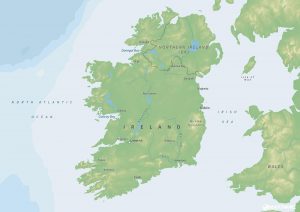Gambling License UK
The UK has one of the safest gambling and betting jurisdictions in the world. Gambling is completely legal and governed by strict laws which are regularly checked and updated. Hearing this, it might surprise you to hear that the UK online gambling industry was unregulated up until 2005. In most countries, this is still true. However, the UK put in place new licensing laws and now runs a fully legal and secure online gambling and betting platform alongside its land operations. Everyone who wishes to provide a gambling service must adhere to the laws in place and must carry a license. In order to apply for the license, companies are required to demonstrate that they have several protections in place in order to prevent crime and protect its customers.
Gambling and Licensing
Gambling in the United Kingdom is regulated by the Gambling Commission. This is done on behalf of the government’s department of Culture, Media and Sport under the Gambling act of 2005. They cover most gambling except spread betting and other forms of index betting – which falls under the financial conduct authority.
In order to open and run gambling services in the UK, one must apply for a license through the Gambling Commission and pay a registration fee. The commission has an online application process available in order to streamline the process. You can expect an operating license application to take around 16 weeks to process, assuming you have supplied all the correct information and documents. If the application is rejected due to incomplete information, your registration fee will be refunded and you will receive a letter explaining which documentation was missing. You will then have to re-register and include the missing documents.
What are the UK Gambling license types?
There are essentially three types of licenses issued in the UK, your proposed business activity will determine which license you will need to apply for, if not all them. The license are, an operating licence (from UKGC), a personal management licence (from UKGC), a personal functional licence (from UKGC) and you may require a premises licence (which would be issued by your local licensing authority).
NOTE: Local licensing authorities also provide gambling permits for pubs, clubs and other establishments for low-level gambling.
The following activities are covered by the licenses:
- Arcades
- Betting
- Bingo
- Casino
- Gambling software
- Gaming machines
- Lotteries
If you provide facilities for remote gambling (online or through other means), and advertise to consumers in Britain, you will need a licence from the Gambling Commission. It is important to note, that if you do not advertise to consumers in Britain, you do not need a UKGC license should someone from the UK choose to use your service, unsolicited.
Arcades
Arcades also known as Fmaily Entertainment Centers (FEC) and Aduly Gaming Centers (AGC) require a FEC/AGC operating license.
The FEC license allows you to offer an unlimited number of category C and D gaming machines in a premises which is open to all ages.
The AGC license limits your customers to 18 years and older and allows you to offer an unlimited number of category C and D gaming machines and up to 20% of your total number of machines, can be of category B3 or B4.
Betting
In terms of betting, there are a number of license categories which are offered.
The Remote general betting (standard) (real events) operating licences The licence allows you to provide facilities for remote (online) gambling to consumers in Britain. It allows the provision of facilities for betting on real events (but not virtual events) by means of remote communication.
The Remote general betting (standard) (virtual events) operating licences allows the provision of facilities for betting on virtual races, competitions or other events or processes, other than a game of chance, by means of remote communication.
The Remote betting host real events licence. If you are a gambling software business that provides facilities for remote betting on real events but only in circumstances in which you host those facilities through other operators’ platforms, then you may be eligible to hold a remote betting host (real events) operating licence.
The Remote betting host virtual events licence. If you are a gambling software business that provides facilities for remote betting on virtual events but only in circumstances in which you host those facilities through other operators’ platforms, then you may be eligible to hold a remote betting host (virtual events) operating licence.
The Remote betting intermediary operating licence. This licence allows you to provide facilities for betting only over the telephone or by email (in circumstances where you are manually processing the bets).
The Remote betting intermediary (trading rooms) operating licence. This licence allows you to run a trading room from a premises licensed by your local licensing authority (betting premises or track premises licence).
The Remote pool betting operating licence. This licence allows you to run a pool betting business online (or through other means of remote communication).
Bingo
The Remote bingo operating licence allows you to provide bingo games to customers via a website, through mobile technology, interactive TV services or radio technology. If you contract with any of the participants who use your gambling facilities (ie if any of those participants are your own customers) then you will need this licence instead of the bingo (game host) operating licence.
The Remote bingo game host operating licence. If you are a gambling software business that provides facilities for playing bingo but only in circumstances in which you host those facilities through other operators’ platforms, then you may be eligible to hold a remote bingo (game host) operating licence.
Casinos
The Remote casino operating licence. The remote casino operating licence allows you to offer casino games to customers via a website, mobile phone, TV or other online service. This includes poker, roulette, blackjack and other casino games, as well as online slot games. If you contract with any of the participants who use your gambling facilities (ie if any of those participants are your own customers) then you will need this licence instead of the casino (game host) operating licence.
The Remote casino game host operating licence. Some gambling software businesses provide facilities for remote gambling by making their games available to customers of other operators. For example, rather than supplying its game software directly to remote gambling operators, the gambling software business hosts its own casino games on its own server, and those games can be accessed by customers of other operators through those other operators’ websites.
Gambling software
If you provide facilities for gambling to consumers in Great Britain you must get your gambling software from suppliers that have a licence from the Gambling Commission.
You will need a gambling software operating licence if you manufacture, supply, adapt or install gambling software which is used by operators licensed by the UKGC, regardless of where you are based. You will require the license if you are based in Great Britain and manufacture, supply, adapt or install gambling software used by operators that do not have a UKGC licence and are based abroad.
Remote gambling and software technical standards do not apply to the software you provide for overseas operators who are not licensed by the Gambling Commission.
Gaming machines
If you manufacture, supply, install, adapt, maintain and repair all categories of gaming machine or parts of a gaming machine (which includes gaming machine software) using remote communication (eg supplying gaming machine software via secure file transmission or uploading new content to machines remotely) you will likely need a license to cover this activity. We suggest you get in touch with the UKGC to better understand what license you will need.
Gambling License UK Costs
Setting up a licensed casino is an involved process and the cost depends on how much work you are prepared to do yourself. If you were to use a consultant to go through the process for you, expect to pay around €25,000.
So what will a consultant assist you with?
- Complete Process – Administration and Application (excluding UKGC fees)
- Drafting a business plan
- Financial prognosis
- System documentation
Once the UKGC license has been issued a number of ongoing compliance requirements need to be met to ensure that the license is maintained without encountering any issues with the UKGC. Expect to pay €1200 per month to a good management company to maintain this for you. Services would include:
- Submission of quarterly custom funds report
- Calculation of submission of gaming tax
- Submission of ad hoc forms and notifications to the UKGC in case of any information security bnreaches or other key events.
- Liaising with the UKGC as required and informing the client accordingly of any new changes/devel-
opments;
- Notification of any changes in corporate control.
- Submission of any ADR (Alternative Dispute Resolution) cases;
- Attending UKGC meetings as required;
- Updating / Changing of company Policies and Procedures as may be required by UKGC regulations
or internally;
- Ongoing review of changes made to website text and adverts, to ensure they are compliant with UKGC requirements
- Submission of any suspicious betting activity.
Note other fees may apply such as VAT and office expenses.
Maintaining your UK License
In order to maintain your license, you will have to pay a yearly fee. This licensing fee varies depending on factors such as your annual gross receipts, the type of establishment, the number of establishments, and so on.
For example: A remote gambling site who allows patrons to bet on horse races and earns more than £500 000 but less than £5 million would pay around £7169 per year.
If you’d like to know more regarding the specific fees for your services you can contact the Gambling Commission via their website.
All annual fees are due within 30 days after your license has been issued, and then every year following. You can even pay your fee online via the commission’s eService. If your license fee is not paid on time, your license will be revoked following which you will have to reapply.
Once you have applied for and received your license it will last indefinitely unless it is:
- Revoked
- Suspended
- Lapses, due to bankruptcy or death for example
- Forfeit for example in the case of a court order following conviction of a relevant offence
- Surrendered by choice
Reporting Requirements
Gambling and betting services are required to report to the Gambling Commission in certain areas. These include:
- Alternative dispute resolution – licensed gambling operators are required to meet certain standards when handling complaints.
- Anti-money laundering
- Change of corporate control
- Information on security breaches
- Protection of customer funds
- Suspicious betting activity (betting license holders only)
This list is not exhaustive and for more information one can visit the commission’s website. The website contains a full list with links to information on how each one works.
UK Gambling anti-money laundering
This is one area where the commission is strict on reporting. They require that any gambling operation keep up to date with assessments of money-laundering risks and management. This includes making sure the appropriate policies, procedures, and controls are in place. As an operator, it is your responsibility to keep financial crime at bay. This is particularly pertinent for remote and non-remote casinos that have additional responsibilities under the Money Laundering Regulations 2007. A key requirement is for these casinos is to make checks on customers.
UK Gambling Tax on casinos
Corporate tax, as of the 2015 budget, sits at 18% for 2017, 2018, and 2019. This tax is due to drop to 17% as of 1 April 2020.
Gambling operations are subject to different duties which fall under seven categories. All these duties have the same general structure in that the operator is taxed on the net profits. This means that the tax is levied as a percentage of the net amount received by the operator, less the amount which has been paid out to players in the form of prizes or winnings. Gambling sites are required to pay a 15% levy on their earnings.
UK Gambling Software Testing
All gambling software and remote operating license holders in the UK must comply with the commission’s technical standards and requirements. These include pre-release testing of games and RNG’s, post-release performance monitoring, annual information security audit and annual games testing audit. The Gambling Commission’s website contains all the information in a pdf format. This also includes testing fame fairness, field product certification and information security.
UK Licensed Casinos
The UK offers a wide range of popular online casinos.
Genesis Casino
LeoVegas
Play Ojo
FansBet
Grosvenor Casinos
Non UK Licensed Casinos
Many casinos are licensed outside of the UK. Popular licensing jurisdictions include Curacao, Malta, Kahnawake which are essentially grey markets.
Alternatives to a UK Gambling License
The UK is known for its beaurocracy and this is a downfall for UK licensed casino operators who can become overwealemed by the seemingly endless beaurocracy that a UK Licensed casino will demand. As a result of this many operators have been looking abroad to license in less beaurocratic jurisdictions. A Popular choice is to obtain a Curacao license or white label.
How to contact the UK Gambling Commission
[email protected] Tel: 0121 230 6666
Get in touch:

FURTHER INFORMATION ON CURACAO GAMBLING LICENSES
We wrote an article on Curacao Gambling License which may be of interest to you should you be looking for further information.



























